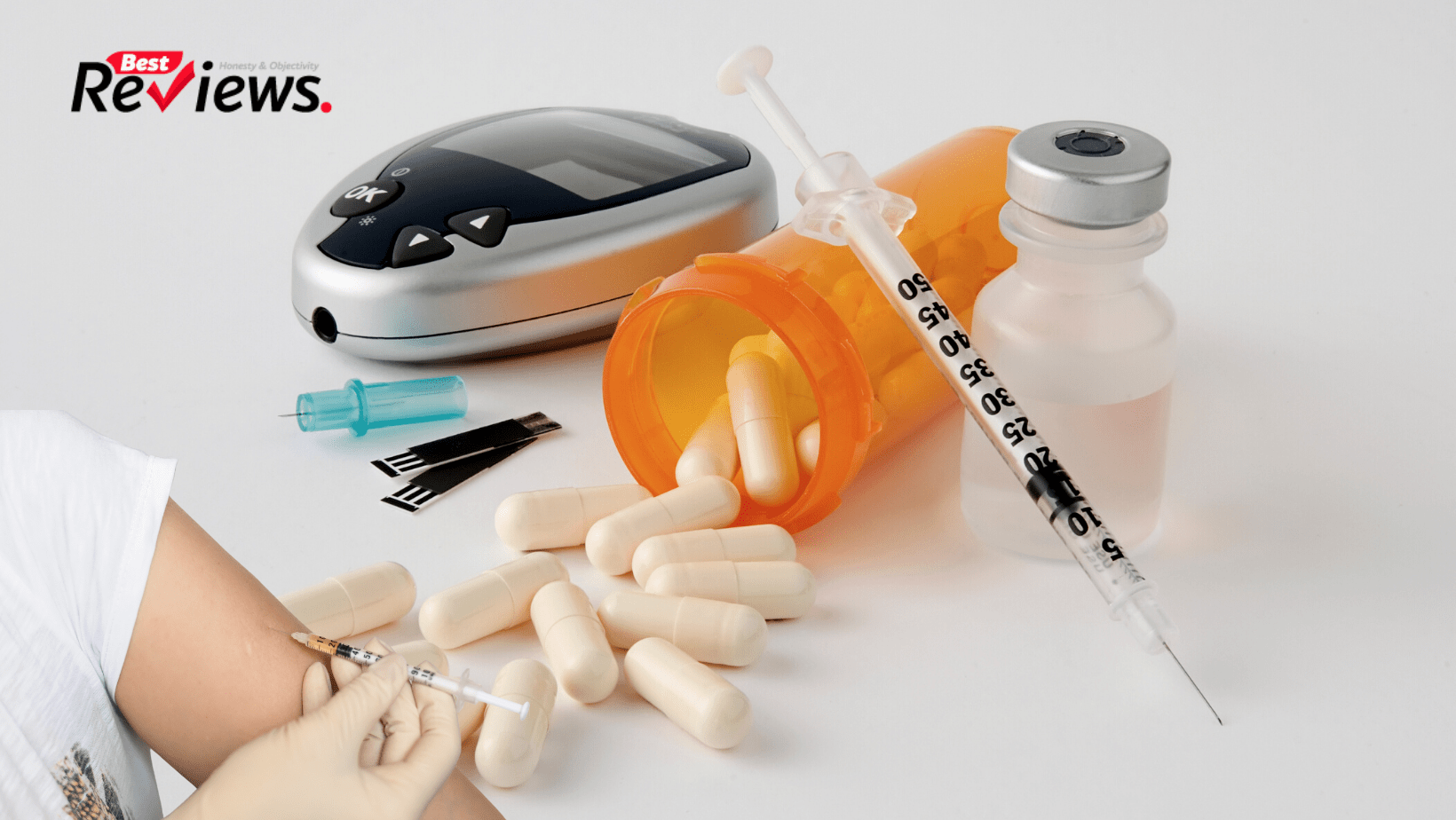Diabetes management. It might be difficult to keep your blood sugar levels within the range prescribed by your doctor. This is because several factors may cause your blood sugar levels to fluctuate, often unexpectedly. The following are some of the elements that might influence your blood sugar levels.
Food
Healthy nutrition is an essential component of having a healthy lifestyle, whether you have diabetes or not. However, if you have diabetes, you must understand how meals impact your blood sugar levels. It is not just the sort of food you consume, but also how much you eat and how you combine different types of food.
What you should do:
- Understand carbohydrate counts and portion sizes. Learning how to measure carbs is an important part of many diabetes control strategies. Carbohydrates have the greatest influence on blood sugar levels. It is critical for persons using mealtime insulin to understand the quantity of carbs in their diet so that they get the correct insulin dosage. Discover the proper portion size for each meal type. Write down quantities for things you consume often to make meal planning easier. To guarantee adequate portion size and an exact carbohydrate count, use measuring cups or a scale.
- Make sure that each meal is well-balanced. Plan your meals to include a variety of grains, fruits and vegetables, proteins, and fats as much as possible. Pay attention to the carbs you consume. Some carbs are healthier for you than others, such as fruits, vegetables, and whole grains. These meals are low in carbs and high in fiber, which helps maintain blood sugar levels constant. Consult your doctor, nurse, or nutritionist about the optimal dietary choices and the proper food type balance.
- Plan your meals and meds. Too little food in relation to your diabetes treatments, particularly insulin, might result in dangerously low blood sugar levels (hypoglycemia). Too much eating may cause your blood sugar level to skyrocket (hyperglycemia). Discuss how to effectively coordinate meal and medication schedules with your diabetic health care team.
- Avoid drinking sugar-sweetened drinks. Sugar-sweetened drinks are heavy in calories and low in nutrients. If you have diabetes, you should avoid these beverages since they cause blood sugar to spike fast. The only exception is if you have a low blood sugar level. Sugar-sweetened beverages, such as soda, juice, and sports drinks, may be used to fast raise blood sugar levels that are too low.

Exercise
Physical exercise is another critical component of your diabetes control strategy. Your muscles utilize sugar (glucose) for energy while you work out. Regular physical exercise also aids your body’s usage of insulin.
These elements work together to reduce your blood sugar level. The longer the impact lasts, the more rigorous your exercise. However, even simple tasks like cleaning, gardening, or standing for long periods of time might help your blood sugar.
What you should do:
- Consult your doctor about an activity program. Consult your doctor about the best sort of exercise for you. In general, most individuals should engage in at least 150 minutes of moderate aerobic exercise every week. On most days of the week, aim for 30 minutes of moderate aerobic exercise. If you’ve been inactive for a long period, your doctor may want to assess your general health before making a recommendation. He or she can advise on the best combination of aerobic and muscle-strengthening activities.
- Stick to an exercise routine. Consult your doctor about the optimal time of day to exercise so that your workout program coincides with your food and prescription routines.
- Understand your numbers. Before you begin exercising, consult with your doctor about what blood sugar levels are acceptable for you.
- Examine your blood sugar level. Check your blood sugar levels before, during, and after exercise, particularly if you use insulin or blood-sugar-lowering drugs. Exercise may drop your blood sugar levels even up to a day later, particularly if you’re doing it for the first time or at a higher intensity. Be mindful of symptoms of low blood sugar, such as shakiness, weakness, fatigue, hunger, lightheadedness, irritability, anxiety, or confusion. If you take insulin and your blood sugar level is less than 90 milligrams per deciliter (mg/dL) or 5.0 mill moles per liter (mmol/L), have a modest snack before you begin exercising to avoid hypoglycemia.
- Keep hydrated. While exercising, drink lots of water or other fluids since dehydration might alter blood sugar levels.
- Be well-prepared. Carry a small snack or glucose tablet with you when exercising in case your blood sugar gets too low. Wear a medical identification bracelet at all times.
- Modify your diabetes treatment strategy as necessary. If you use insulin, you may need to lower your insulin dosage before exercising and carefully check your blood sugar for many hours after strenuous exercise since delayed hypoglycemia may develop. Your doctor can advise you on proper drug modifications. If you’ve increased your workout habit, you may need to modify your therapy.
Medication
When diet and exercise are insufficient for treating diabetes, insulin and other diabetic medicines are used to reduce blood sugar levels. The success of these drugs, however, is dependent on the time and amount of the dosage. Medications used for diseases other than diabetes might potentially have an impact on your blood sugar levels.
What you should do:
- Properly store insulin. Insulin that has been incorrectly kept or has passed its expiry date may no longer be effective. Insulin is very sensitive to temperature fluctuations.
- Inform your doctor about any issues. If your diabetes drugs cause your blood sugar to dip too low or rise too high on a regular basis, the dose or timing may need to be modified.
- Use new drugs with caution. If you are thinking about taking an over-the-counter medicine or whether your doctor prescribes a new medication to address another illness, such as high blood pressure or high cholesterol, ask your doctor or pharmacist if the medication will impact your blood sugar levels. A different drug may be prescribed in certain cases. Always with your doctor before starting any new over-the-counter medicine so you understand how it will affect your blood sugar level.

Illness
When you’re unwell, your body creates stress hormones that aid in the battle against the sickness, but they may also elevate your blood sugar level. Diabetes control may also be complicated by changes in your appetite and daily activities.
What you should do:
- Make a plan. Create a sick-day strategy with your healthcare team. Include instructions on what drugs to take, how often to check your blood sugar and urine ketone levels, how to alter your medication doses, and when to contact your doctor.
- Keep taking your diabetic medication. Contact your doctor if you are unable to eat due to nausea or vomiting. Because of the risk of hypoglycemia, you may need to alter your insulin dosage or temporarily decrease or discontinue short-acting insulin or diabetic medication. Do not, however, discontinue your long-acting insulin. It is important to test your blood glucose often during sickness, and your doctor may also urge you to check your urine for the presence of ketones.
- Follow your diabetic food plan. Eating normally will help you regulate your blood sugar levels if you can. Keep stomach-friendly items on your hands, such as gelatin, crackers, soups, and applesauce.
To keep hydrated, drink plenty of water or other non-calorie-containing drinks, such as tea. If you use insulin, you may need to consume sugar-sweetened drinks, such as juice or a sports drink, to prevent your blood sugar from dipping too low.
Alcohol
To compensate for declining blood sugar levels, the liver generally releases stored sugar. However, if your liver is busy metabolizing alcohol, your blood sugar level may not get the necessary boost from your liver. Alcohol may cause low blood sugar levels quickly after consumption and for up to 24 hours thereafter.
What you should do:
- Get your doctor’s approval before drinking alcohol. Diabetes issues such as nerve damage and eye disease might be exacerbated by alcohol. However, if your diabetes is under control and your doctor approves, an occasional alcoholic beverage is OK. Moderate alcohol intake is defined as one drink per day for women of any age and men over the age of 65, and two drinks per day for males under the age of 65. A 12-ounce beer, 5 ounces of wine, or 1.5 ounces of distilled liquor equals one drink.
- Never consume alcoholic drinks on an empty stomach. To avoid low blood sugar, eat before drinking or drink with a meal if you use insulin or other diabetic treatments.
- Choose your beverages wisely. Light beer and dry wines have less calories and carbs than other alcoholic beverages. Sugar-free mixers, such as diet soda, diet tonic, club soda, or seltzer, will not boost your blood sugar.
- Count your calories. Include the calories from any alcohol you consume in your daily calorie total. Inquire with your doctor or a nutritionist about including calories and carbs from alcoholic beverages into your diet plan.
- Before going to bed, check your blood sugar level. Check your blood sugar level before going to bed since alcohol may drop blood sugar levels long after you’ve had your last drink. If your blood sugar isn’t between 100 and 140 mg/dL (5.6 and 7.8 mmol/L), have a snack before bed to compensate for a decline.
Menopause and menstruation
Hormone variations in the week before and during menstruation may cause large swings in blood sugar levels.
What you should do:
- Search for patterns. Keep meticulous records of your blood sugar levels from month to month. You may be able to forecast irregularities in your menstrual cycle.
- Modify your diabetes treatment strategy as necessary. To compensate for blood sugar fluctuations, your doctor may prescribe modifications to your diet plan, exercise level, or diabetes medicines.
- Check your blood sugar levels more regularly. If you’re nearing or experiencing menopause, speak to your doctor about whether you should be monitoring your blood sugar levels more often. Menopause symptoms might be mistaken with low blood sugar symptoms, therefore check your blood sugar before treating a suspected low to confirm the low blood sugar level. The majority of birth control methods are safe for diabetic women to utilize. Oral contraceptives, on the other hand, may cause blood sugar levels to rise in certain women.
Stress

When you’re anxious, the chemicals your body creates in reaction to the stress may cause your blood sugar to increase. Furthermore, if you’re under a lot of stress, it may be more difficult to stick to your typical diabetes care practice.
What you should do:
- Search for patterns. When you track your blood sugar, record your stress level on a scale of 1 to 10. A pattern might develop shortly.
- Take command. Fight back after you understand how stress impacts your blood sugar level. Learn how to relax, prioritize your responsibilities, and establish limitations. Avoid common stresses wherever possible. Exercise may typically help reduce stress and blood sugar levels.
- Seek assistance. Learn new stress-management techniques. Working with a psychologist or clinical social worker may assist you in identifying stresses, resolving stressful circumstances, or learning new coping skills. The more you understand the elements that impact your blood sugar level, the better you will be able to predict variations and prepare appropriately. If you’re having problems maintaining your blood sugar levels within your goal range, get assistance from your diabetic health care team.


















